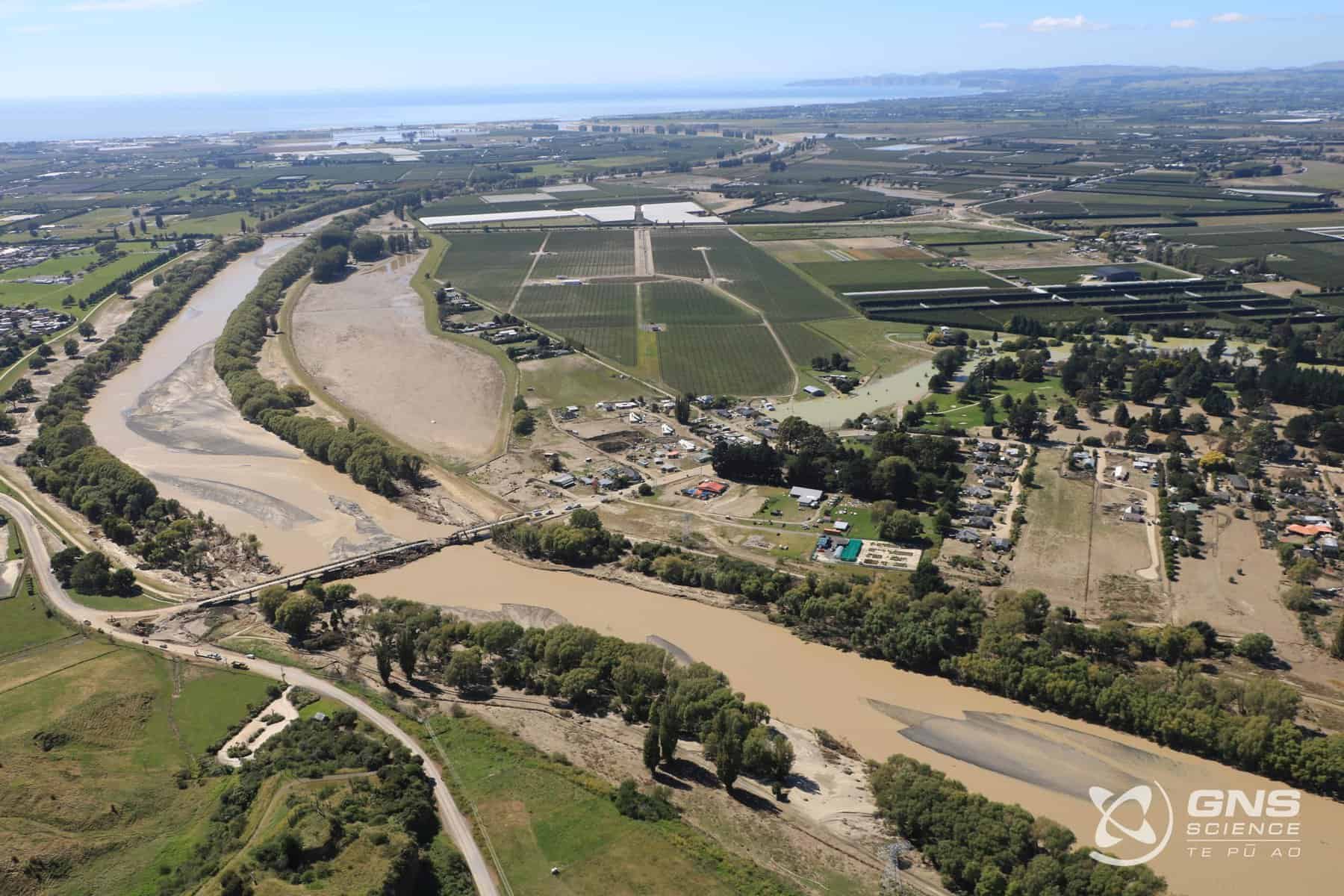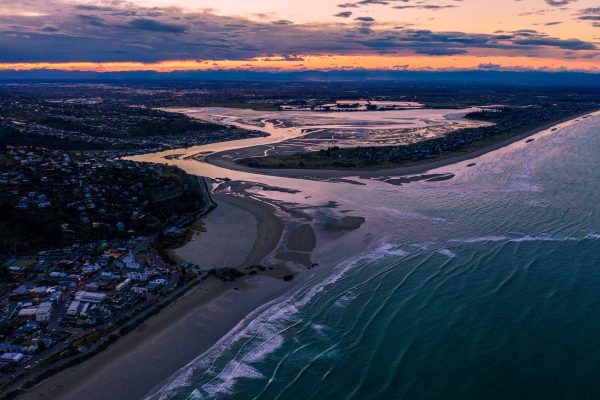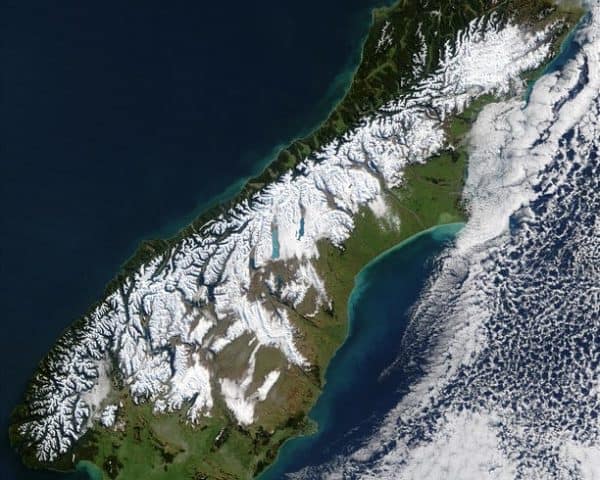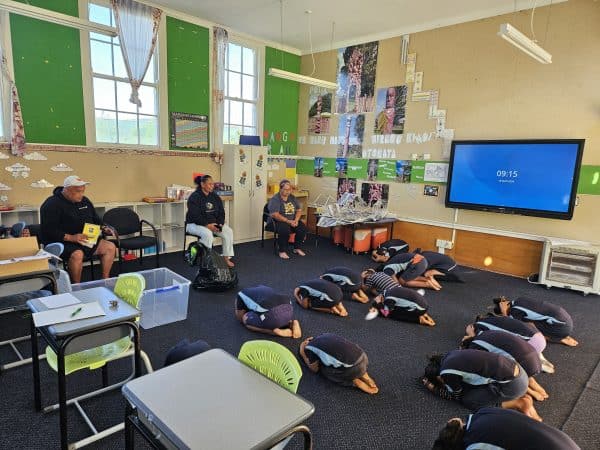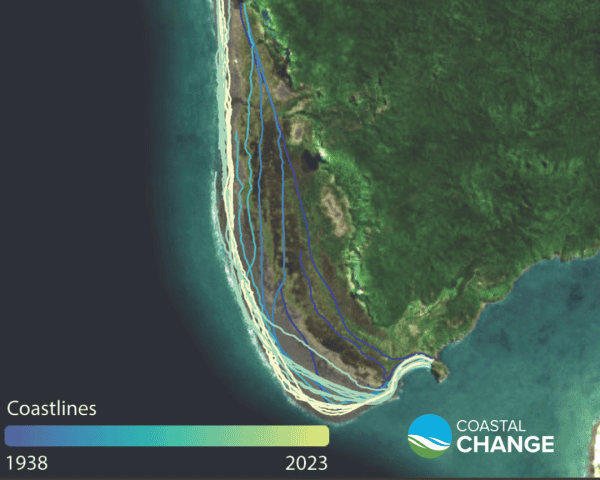Following the Auckland Anniversary Weekend floods, the RNC directorate engaged with our research leaders to identify the response activities they were involved in, and how we could support them.
Our Weather & Wildfire co-lead Dr Richard Turner and colleagues at NIWA began analysing how the event differed to previous modelling of a severe storm directly hitting the city.
The GNS Science Landslides team, including Dr Andrea Wolter of our Weather & Wildfire team, began to undertake reconnaissance trips to assess landslides in impacted areas.
Our researchers were also in demand for media commentary. Built Environment team members at the Civil and Environmental Engineering Department at the University of Auckland wrote an op ed for Newsroom with recommendations on how we could upgrade our stormwater systems as part of our adaptions to climate change.
Our director Richard Smith wrote an op ed for Stuff, in which he called for more investment in resilience initiatives, to ensure future floods do not turn into disasters. We received positive feedback, and heard the article was being widely shared within relevant government agencies.
Sixteen days after the Anniversary weekend event, Cyclone Gabrielle hit Northland and over subsequent days brought devastating impacts to Northland, Tāmaki Makaurau, Coromandel, the Bay of Plenty, Te Tairāwhiti, Hawke’s Bay and eastern Wairarapa.
Our researchers began to expand their activities. Once again, the GNS Landslides team mobilised around the North Island, with Dr Andrea Wolter deployed to Tairāwhiti. The team used a new tool, co-developed with RNC, which forecasts where landslides are most likely to have occurred. Data collected will be used to further train the Rainfall-Induced Landslides tool, to improve its accuracy in future heavy rainfall events. RNC produced a short video with Andrea explaining the tool and its role in the response.
Dr Sally Potter of GNS Science is an expert on impact-based forecasts and warnings. Sally is based at Emergency Management Bay of Plenty, and was able to connect their Emergency Coordination Centre to real-time rainfall-induced landslide impact forecasts crafted by the GNS Landslides team.
Our Changing Coastlines team are mapping the entire coastline of Aotearoa, drawing on over half a century of aerial photographs and satellite images to identify erosion trends and hotspots. Led by Prof Mark Dickson and Assoc Prof Murray Ford of the University of Auckland, the team pivoted to examine how Cyclone Gabrielle altered North Island coastlines. They obtained extra satellite imagery, revealing stark contrasts before and after the cyclone.
Following the Kaikōura earthquake Dr Sarah Beaven of the University of Canterbury and our Rural Communities team developed Ethical Guidelines for Post-Disaster Research, for researchers, scientists and engineers going into disaster-impacted areas to collect data. Sarah updated the guidance and in March we re-released it through our channels, where it was widely shared.
Our research and researchers continued to feature in numerous media stories. Prof Mark Dickson spoke to NZ Herald about the extent of coastal cliff erosion in Tāmaki Makaurau. Writing for The Conversation, Dr Raven Cretney, Dr Christina Hanna and Prof Iain White examined past managed retreats to inform how we move forward. Stuff featured PhD student Muizz Shah’s modelling of extreme wind gusts in Auckland’s CBD. And as more heavy rain headed towards eastern Aotearoa, Dr Lauren Vinnell of Massey University shared her concerns about disaster fatigue in the NZ Herald.
Prof Liam Wotherspoon of our Built programme was appointed to the Waka Kotahi External Technical Panel to review post-Cyclone Gabrielle recovery planning and guidance, and brought in as a member of the Engineering Leadership Group that organises the Hawke’s Bay Technical Clearinghouse, a forum for disseminating information to the engineering community. Prof Christine Kenney of Massey University advised NEMA on the tangata whenua response to Cyclone Gabrielle, and helped develop the terms of reference for the Government Inquiry into the Response to the North Island Severe Weather Events.
In February MBIE announced $10.8 million for urgent scientific research and data collection. RNC research leaders Prof Liam Wotherspoon and Dr Charlotte Brown are developing an evidence-base to support critical infrastructure recovery decisions and provided policy briefs on recovery and resilience of infrastructure. RNC was also funded to develop summaries of key lessons for different stages of recovery management.
The RNC directorate has provided coordination across the new Extreme Weather Research Platform. With the assistance of Climate Sigma, we quickly developed a new website with information about the funded projects, and we’ve run two webinars for relevant stakeholders, with more events and initiatives planned.
